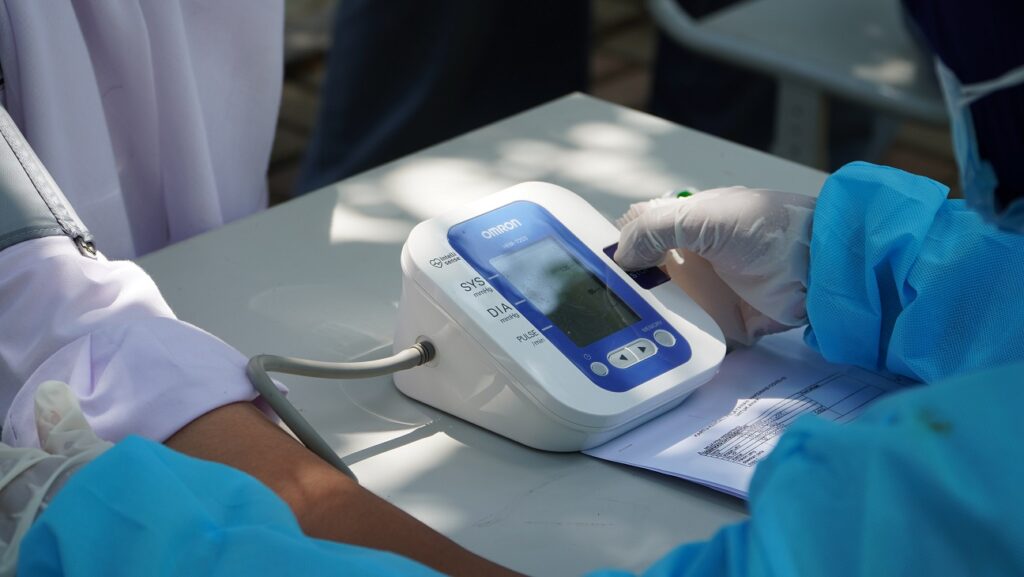Blood pressure is a vital indicator of our overall health and well-being. It measures the force exerted by the blood against the walls of our arteries as it circulates through our body. Maintaining proper blood pressure levels is crucial for optimal cardiovascular function and the prevention of various health complications. In this article, we will delve into the significance of understanding and managing blood pressure, and explore the reasons why it is essential to maintain healthy levels.
Cardiovascular Health: One of the primary reasons for maintaining proper blood pressure is to promote cardiovascular health. High blood pressure, also known as hypertension, puts excessive strain on the heart and blood vessels. Over time, this can lead to the development of serious conditions such as heart disease, heart attacks, and strokes. By keeping blood pressure within the normal range, we reduce the risk of these life-threatening ailments.
Kidney Function: The kidneys play a crucial role in regulating blood pressure. They help maintain the balance of electrolytes and fluid levels in the body. High blood pressure can damage the blood vessels in the kidneys, impairing their ability to filter waste and maintain proper fluid balance. This can lead to kidney disease or even kidney failure. By controlling blood pressure, we support optimal kidney function and preserve their vital role in overall health.
Stroke Prevention: Stroke is a leading cause of death and disability worldwide. When blood pressure is too high, it can cause blood vessels in the brain to rupture or become blocked, leading to a stroke. By managing blood pressure levels, we significantly reduce the risk of experiencing a stroke and its devastating consequences.
Eye Health: Proper blood pressure maintenance is essential for preserving vision and eye health. High blood pressure can damage the blood vessels in the eyes, leading to conditions such as hypertensive retinopathy, which can result in vision loss or blindness. By controlling blood pressure, we protect our eyes and reduce the risk of eye-related complications.
Cognitive Function: Studies have shown a strong correlation between high blood pressure and cognitive decline. Uncontrolled hypertension can contribute to the development of vascular dementia and Alzheimer’s disease. By managing blood pressure levels, we promote healthy brain function and reduce the risk of cognitive impairment.
Overall Well-being: Maintaining proper blood pressure levels contributes to our overall well-being. When blood pressure is within the normal range, the heart doesn’t have to work as hard to pump blood, reducing strain on the cardiovascular system. This can lead to increased energy levels, improved sleep quality, and an enhanced sense of vitality.
Prevention is Key: Understanding the importance of maintaining proper blood pressure is also about prevention. By actively monitoring and managing blood pressure levels, we can detect any abnormalities early on and take appropriate measures to address them. Regular blood pressure checks and adopting a healthy lifestyle can help identify and manage potential issues before they escalate into severe health conditions.
Lifestyle Modifications: Maintaining proper blood pressure often involves making certain lifestyle modifications. Adopting a balanced diet that is low in sodium, saturated fats, and cholesterol, and high in fruits, vegetables, and whole grains can have a positive impact on blood pressure levels. Regular exercise, weight management, stress reduction techniques, and avoiding tobacco and excessive alcohol consumption also play a significant role in blood pressure management.
Medication and Treatment: In some cases, lifestyle modifications alone may not be sufficient to maintain optimal blood pressure levels. In such situations, healthcare professionals may prescribe medications to help manage blood pressure effectively. It is essential to follow medical advice and adhere to prescribed treatment plans to ensure blood pressure remains within the recommended range.
Regular Monitoring: Understanding the importance of maintaining proper blood pressure also involves regular monitoring. Blood pressure should be measured at regular intervals, and any significant changes should be reported to a healthcare professional. Self-monitoring devices are available for home use, making it convenient to track blood pressure regularly. By staying vigilant and proactive in monitoring blood pressure, we can catch any fluctuations or abnormalities early on and take appropriate action.
Individualized Approach: It’s important to recognize that blood pressure goals may vary from person to person. Factors such as age, medical history, and overall health condition can influence the target blood pressure range. Consulting with a healthcare professional can help determine the appropriate blood pressure goals for each individual and tailor the management plan accordingly.
Education and Awareness: Understanding the importance of maintaining proper blood pressure also involves raising awareness and educating others. By spreading knowledge about the risks associated with high blood pressure and the benefits of maintaining healthy levels, we can empower individuals to take control of their health. Education campaigns, community outreach programs, and informational resources can play a vital role in promoting blood pressure awareness.
Impact on Quality of Life: Maintaining proper blood pressure levels can significantly impact our quality of life. When blood pressure is controlled, we reduce the risk of experiencing debilitating health complications, hospitalizations, and limitations in daily activities. By prioritizing blood pressure management, we can enjoy a better quality of life with improved physical and mental well-being.
Long-Term Health Benefits: Investing in proper blood pressure management yields long-term health benefits. By taking proactive measures to control blood pressure, we reduce the risk of developing chronic conditions such as cardiovascular disease, kidney disease, and stroke. This, in turn, reduces the burden on healthcare systems and improves overall population health.
Empowerment and Personal Responsibility: Understanding the importance of maintaining proper blood pressure empowers individuals to take responsibility for their health. By actively participating in blood pressure management through lifestyle modifications, regular monitoring, and seeking appropriate medical care, individuals can have a significant impact on their own well-being and longevity.
Maintaining proper blood pressure levels is crucial for overall health and well-being. It plays a vital role in preventing cardiovascular disease, strokes, kidney problems, and other health complications. Understanding the importance of blood pressure management empowers individuals to take proactive steps in monitoring and controlling their blood pressure through lifestyle modifications, regular check-ups, and, when necessary, medication. By prioritizing blood pressure control, we can lead healthier lives, prevent serious health conditions, and enjoy an improved quality of life.

